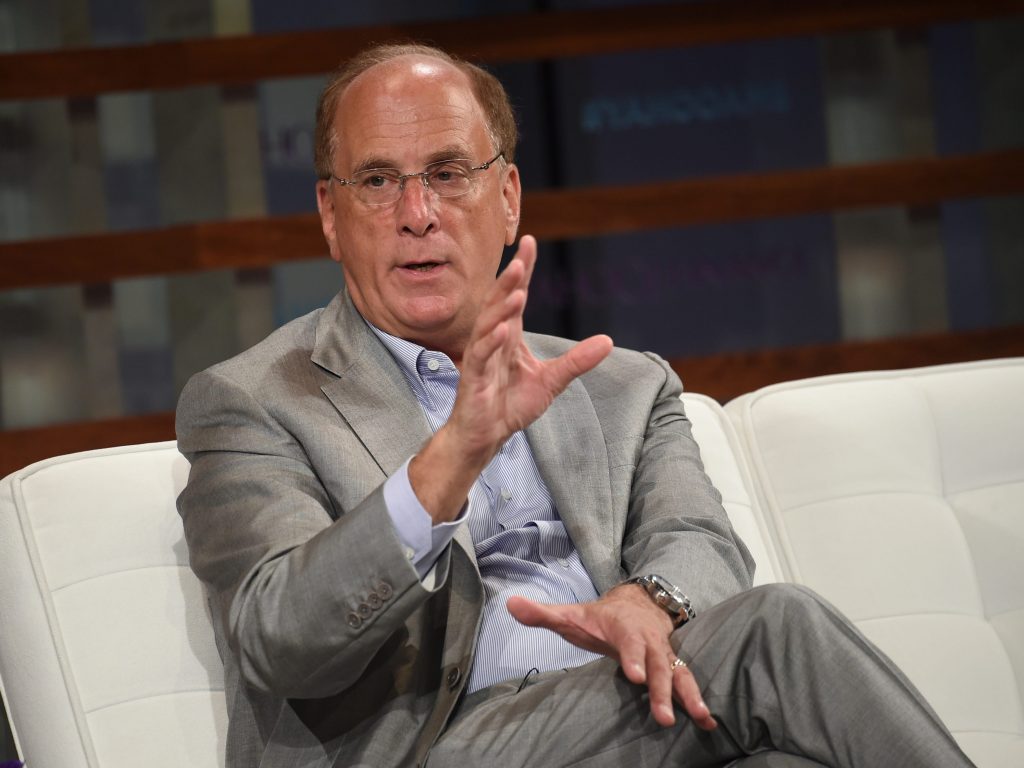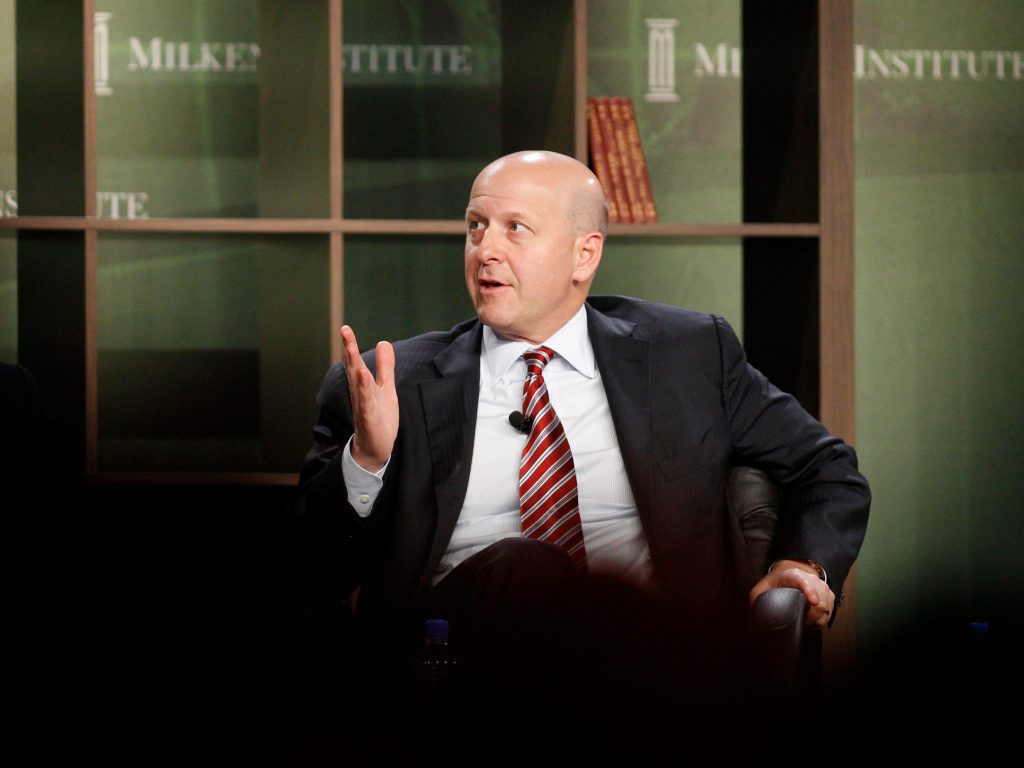- Wall Street dealmakers have been worried about layoffs for months as deals have ground to a halt.
- On Monday, Goldman Sachs said it will slow hiring and reinstate annual performance reviews.
- Here's everything you need to know about Wall Street's hiring slowdown, from Goldman to BlackRock.
Wall Street's second quarter earnings season was grim — and that's bad news for bankers and other financiers who've seen their compensation soar to new heights as dealmaking skyrocketed during the pandemic.
Goldman Sachs, a harbinger of dealmaking, was the last big bank to report earnings for the period ending June 30. While trading revenue soared by nearly a third, overall revenue declined 23% due to a decline in investment banking activity.
While the fall in dealmaking was expected, the bank also warned that it will slow hiring, welcome attrition — and reinstate its annual performance reviews. Historically, Goldman has used the annual review, which had been suspended during the pandemic, to cull the bottom 5% of its staff for failing to meet performance goals.
Goldman is just the latest Wall Street firm to warn that talent could suffer as it looks to reduce expenses, suggesting a new era of belt-tightening on Wall Street that will lead to fewer jobs and lower comp. The decline in IPOs and SPACs has already led to discomfort among junior bankers with too much time on their hands, as Insider has previously reported. Morgan Stanley, meanwhile, has warned that it's ready to cut the payroll if things get any worse. Stock market volatility has also resulted in a hiring slowdown at behemouth asset manager BlackRock.
At Goldman Sachs, investment banking revenues fell to $2.1 billion in the second quarter, down 41% compared to the same period in 2021. At JPMorgan Chase, investment banking revenues fell 61% compared to last year, while Bank of America's investment banking fees declined 47% and Morgan Stanley's were down 55%.
The path ahead remains murkey as the Federal Reserve aggressively raises rates in a bid to combat inflation.
"If things really deteriorated, particularly in the US, then we take a much more aggressive position. And we obviously have the ultimate weapon, which is comp," said Morgan Stanley CEO James Gorman on a conference call with analysts last Thursday, according to a transcript on investment research platform Sentieo.
Goldman chief David Solomon said uncertainty about the pace of growth in global markets — and the health of consumers — is driving the bank's "cautious" approach in the second half.
"We don't have a crystal ball to tell you exactly how monetary policy will navigate the inflationary environment that exists," Solomon said Monday. "But there's no question that economic conditions are tightening to try to control inflation. And as economic conditions tighten, it will have a bigger impact on corporate confidence and also consumer activity in the economy."
One ray of light appears to be wealth management. After a recruitment pullback that lasted several years, Bank of America's Merrill Lynch has resumed selectively hiring experienced financial advisors with large, established books of business from competitors in addition to training up advisors internally in its large development program.
Merrill Lynch President Andy Sieg said Monday that in the second quarter the firm hired 93 experienced advisors, the most in one quarter since 2010, the year after Bank of America's Merrill purchase closed. In the first quarter of this year, the firm hired about 30 veteran advisors.
"I anticipate our pace of hiring will increase in the second half of the year," Sieg said, adding that Merrill's "hiring pipelines are robust, which give me some confidence that we'll see strength in the second half."
Here's everything you need to know about how Wall Street's belttightening will impact jobs and compensation.
BlackRock says it plans to curtail new recruits

According to Insider's reporting, BlackRock leadership have cited economic uncertainty as a driving factor as the money manager hits the brake on hiring.
Executives signaled the approach to staff during two town hall meetings this year, Insider reported.
BlackRock tells employees the money manager is slowing down hiring, citing economic uncertainty
Capital markets hit hard

A depressed capital markets environment means the bankers who work on IPOs and special purpose acquisition companies, or SPACs, have been among those who most fear their jobs may be on the line.
"The honest truth is, if things don't turn around in equity markets, this is going to happen at banks," said one senior capital-markets person, who requested anonymity to speak freely about growing anxiety over cutbacks.
A depressed IPO and SPAC market has bankers bracing for cuts to comp — and jobs
Work for junior investment bankers is drying up

Just in time for the warm summer weather, junior bankers have suddenly had a lot more bandwidth to break out their suntan lotion and hit the pool — during the workday, no less.
As deal volumes have significantly scaled back in recent weeks, some IB analysts are enjoying extra time lounging by the water or practicing their Madden football on Xbox, one analyst at a bulge-bracket firm recently confessed in an as-told-to column for Insider. Here's how they're catching up on R&R during the down — while their bosses are none the wiser.
Junior investment bankers are 'chilling' poolside and playing Xbox as deals plummet. Inside their new 9 to 5.
See where the next round of layoffs on Wall Street are likely
Equity capital markets, in particular, might feel the pain of slowing dealmaking this year.
"Right now, everybody's worried about a recession," Brennan Hawken, an equity-research analyst at UBS who covers large-cap banks, told Insider in a recent interview.
'Some will be purged': Dismal bank earnings and Goldman's plans to resurrect its dreaded annual performance reviews confirm bankers' worst fears about looming layoffs
Fears of job cuts were already on the agenda in the first quarter

Bank executives signaled a troubling macro environment and slowing dealmaking this April, when they reported first quarter results.
"No one knows, obviously, where the macro environment goes as we go forward," said Goldman Sachs CEO David Solomon at the time. "But when you look at the volumes and the levels of 2020 and 2021, we've said repeatedly that those volumes were at levels that were not sustainable and are a reflection of some of that monetary and fiscal policy."
Wall Street rushed to hire as dealmaking boomed. What happens now as investment banking fees nosedive?
Junior bankers are bracing for job cuts

Junior bankers in particular fear the worst amid declining deals.
After a series of successes during the pandemic — like notching higher pay for analysts and associates — many now fear the power is back in the hands of executives who might look to pare back compensation or trim roles.

